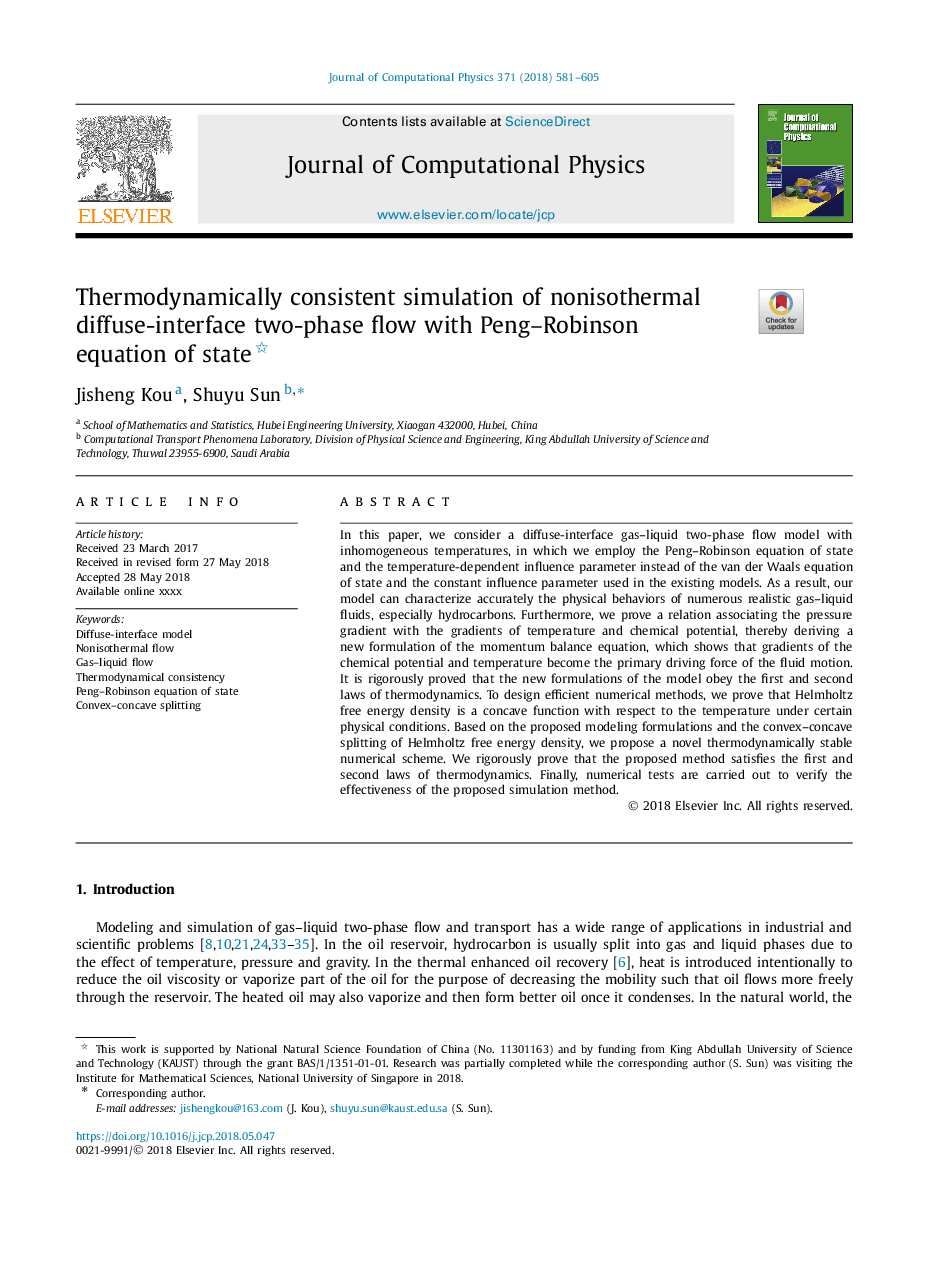| Article ID | Journal | Published Year | Pages | File Type |
|---|---|---|---|---|
| 6928680 | Journal of Computational Physics | 2018 | 25 Pages |
Abstract
In this paper, we consider a diffuse-interface gas-liquid two-phase flow model with inhomogeneous temperatures, in which we employ the Peng-Robinson equation of state and the temperature-dependent influence parameter instead of the van der Waals equation of state and the constant influence parameter used in the existing models. As a result, our model can characterize accurately the physical behaviors of numerous realistic gas-liquid fluids, especially hydrocarbons. Furthermore, we prove a relation associating the pressure gradient with the gradients of temperature and chemical potential, thereby deriving a new formulation of the momentum balance equation, which shows that gradients of the chemical potential and temperature become the primary driving force of the fluid motion. It is rigorously proved that the new formulations of the model obey the first and second laws of thermodynamics. To design efficient numerical methods, we prove that Helmholtz free energy density is a concave function with respect to the temperature under certain physical conditions. Based on the proposed modeling formulations and the convex-concave splitting of Helmholtz free energy density, we propose a novel thermodynamically stable numerical scheme. We rigorously prove that the proposed method satisfies the first and second laws of thermodynamics. Finally, numerical tests are carried out to verify the effectiveness of the proposed simulation method.
Related Topics
Physical Sciences and Engineering
Computer Science
Computer Science Applications
Authors
Jisheng Kou, Shuyu Sun,
